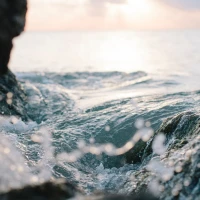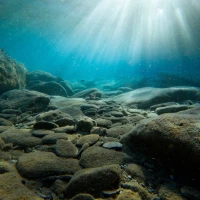Diving is more than just a recreational activity; it is a transformative experience that allows individuals to explore the depths of the underwater world while also delving into their own inner selves. By incorporating mindfulness exercises and self-discovery techniques into the practice of diving, individuals can elevate their experience to new heights. In this article, we will explore the powerful connection between diving and self-awareness, and discuss various exercises and techniques that can enhance this connection.
The Unparalleled Connection Between Diving and Self-Awareness
Diving offers a unique opportunity to immerse oneself in a completely different environment. The weightlessness, serenity, and vastness of the underwater world can trigger a profound sense of self-awareness and create a space for introspection. This connection between diving and self-awareness is rooted in several factors:
1. Mindful Breathing Techniques
One of the core principles of diving is the focus on breath control. By practicing mindful breathing techniques underwater, divers become more attuned to their breath and can use it as an anchor to the present moment. This deepened focus on breath not only enhances safety in diving but also serves as a gateway to mindfulness.
2. Sensory Experience
Diving engages all the senses, offering a multi-dimensional experience that heightens self-awareness. The sight of vibrant coral reefs, the sounds of bubbles escaping, the feel of water against the skin, and even the taste of saltwater create a sensory overload that can bring individuals into the present moment, fostering a deep connection with oneself.
3. Silence and Solitude
Underwater, a sense of silence and solitude prevails. The absence of distractions and external influences allows divers to tune in to their inner selves and engage in introspection. This solitude creates an environment conducive to self-discovery, as it encourages individuals to confront their thoughts and emotions in a tranquil and undisturbed setting.
Mindfulness Exercises for Divers
To truly harness the power of self-awareness during diving, divers can incorporate mindfulness exercises into their underwater routines. These exercises are designed to bring attention to the present moment and cultivate a sense of mental clarity. Here are a few effective mindfulness exercises for divers:
1. Dive Meditation
Before descending into the depths, divers can engage in a brief meditation session on the surface. By focusing on their breath and observing their thoughts without judgment, divers can attain a state of calm and clarity. This meditation practice sets the tone for a mindful and introspective dive.
2. Underwater Observation
During the dive, divers can consciously observe their surroundings with a sense of curiosity and wonder. Paying attention to the intricate details of marine life, the gentle movements of aquatic creatures, and the play of light underwater can enhance the experience and foster a deeper connection with the self.
3. Reflection and Journaling
After each dive, divers can engage in reflection and journaling to capture their thoughts, emotions, and insights. Putting words to their experiences can help divers gain a clearer understanding of their own reactions and allow for continuous self-discovery.
Self-Discovery Techniques for Divers
In addition to mindfulness exercises, divers can also explore various self-discovery techniques to further enhance their experience in the water. These techniques delve deeper into the realms of introspection and personal growth, bringing profound insights to the surface. Here are a few self-discovery techniques for divers:
1. Visualizations
Visualizations are powerful tools that can help divers tap into their subconscious mind and unlock hidden potential. Before a dive, divers can engage in visualization exercises, picturing themselves exploring the underwater world with confidence and ease. This technique not only enhances performance but also instills a sense of empowerment and self-belief.
2. Guided Imagery
Similar to visualizations, guided imagery involves using the power of imagination to evoke specific mental images. Divers can listen to guided imagery recordings specifically designed for diving, which will transport them to the underwater realm in their minds. This technique can deepen the connection between the mind and the body, heightening self-awareness and enhancing the overall dive experience.
3. Breathwork for Emotional Release
The breath is a powerful tool for releasing emotions that may arise during diving. By consciously using the breath to release tension and invite emotional release, divers can create space for healing and self-exploration. This technique allows divers to become aware of and acknowledge any emotions that arise during the dive, fostering a deeper understanding of oneself.
The Benefits of Self-Awareness in Diving
The integration of mindfulness exercises and self-discovery techniques in diving offers numerous benefits that go beyond the boundaries of the underwater world. Let’s explore some of the key advantages of cultivating self-awareness in the context of diving:
1. Increased Focus and Presence
The practice of mindfulness in diving cultivates a heightened sense of focus and presence. By training the mind to stay in the present moment, divers can fully immerse themselves in the dive, enhancing safety and enjoyment. This increased focus also allows divers to observe and appreciate the intricate nuances of the underwater environment.
2. Emotional Regulation
Diving can evoke a range of emotions, from awe and wonder to anxiety and fear. By practicing self-awareness techniques, divers develop the ability to recognize and regulate their emotions effectively. This emotional regulation fosters a sense of calm and composure underwater, allowing divers to navigate any unexpected situations with greater ease.
3. Enhanced Connection with Marine Life
Self-awareness in diving extends beyond the self; it also deepens the connection with the marine life encountered underwater. By understanding one’s impact on the environment and approaching marine life with respect and mindfulness, divers can foster a more symbiotic and harmonious relationship with the underwater ecosystems.
Comparison Chart: Mindfulness Exercises vs. Self-Discovery Techniques
To better understand the differences between mindfulness exercises and self-discovery techniques in diving, here is a comparison chart highlighting their unique features:
| Mindfulness Exercises | Self-Discovery Techniques |
|---|---|
| Focus on breath control | Utilize visualization techniques |
| Enhance present-moment awareness | Dive into guided imagery |
| Cultivate clarity and mental calmness | Promote emotional release through breathwork |
| Develop observation skills | Unlock hidden potential through visualizations |
| Foster a sense of tranquility and serenity | Deepen the mind-body connection |
Conclusion
Diving is not merely an adventure; it is an opportunity for self-exploration and personal growth. By incorporating mindfulness exercises and self-discovery techniques into the practice of diving, individuals can delve into the depths of their own inner worlds while exploring the mysteries of the underwater realm. Through the power of self-awareness, divers can embark on a transformative journey that goes beyond the boundaries of the ocean, enriching their lives both in and out of the water. So, dive deep, embrace mindfulness, and embark on a journey of self-discovery like no other.









